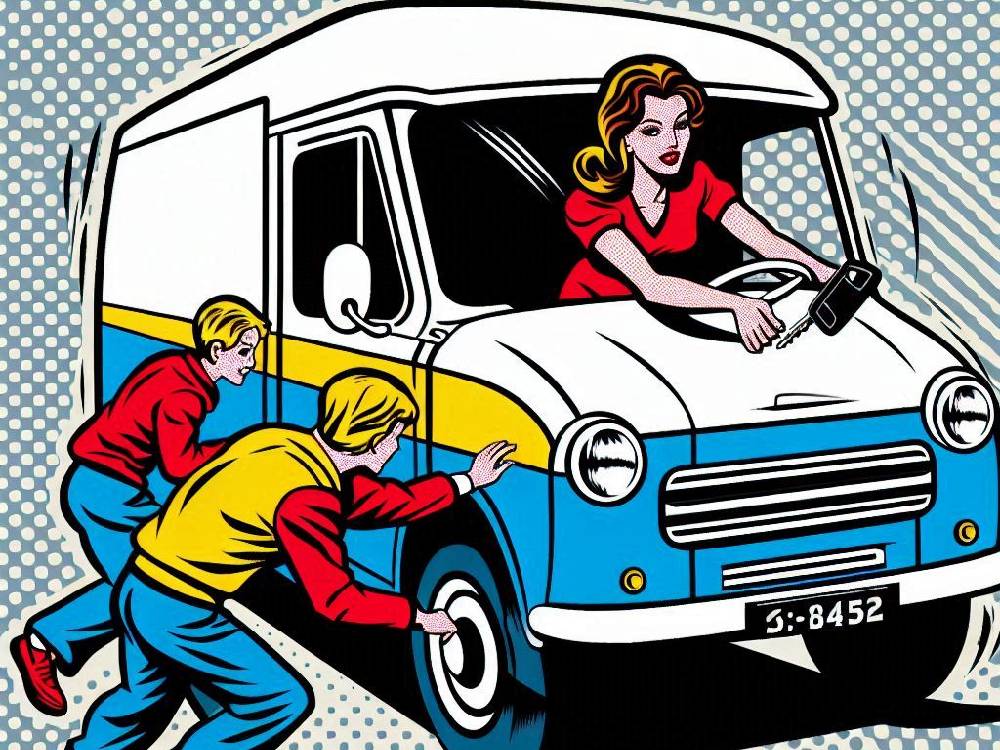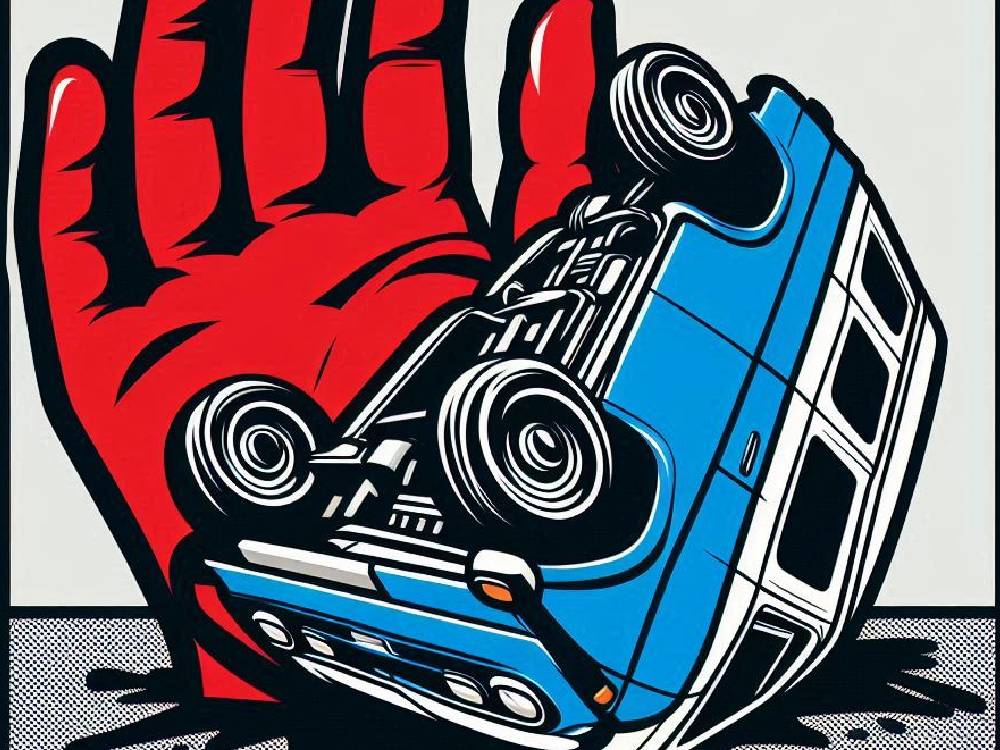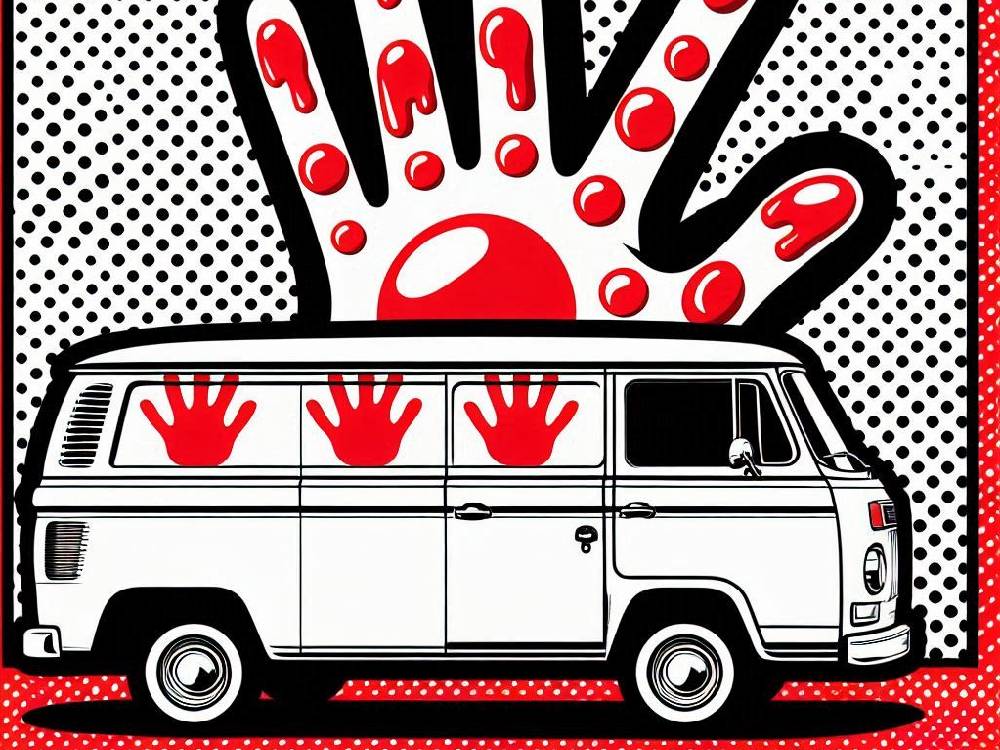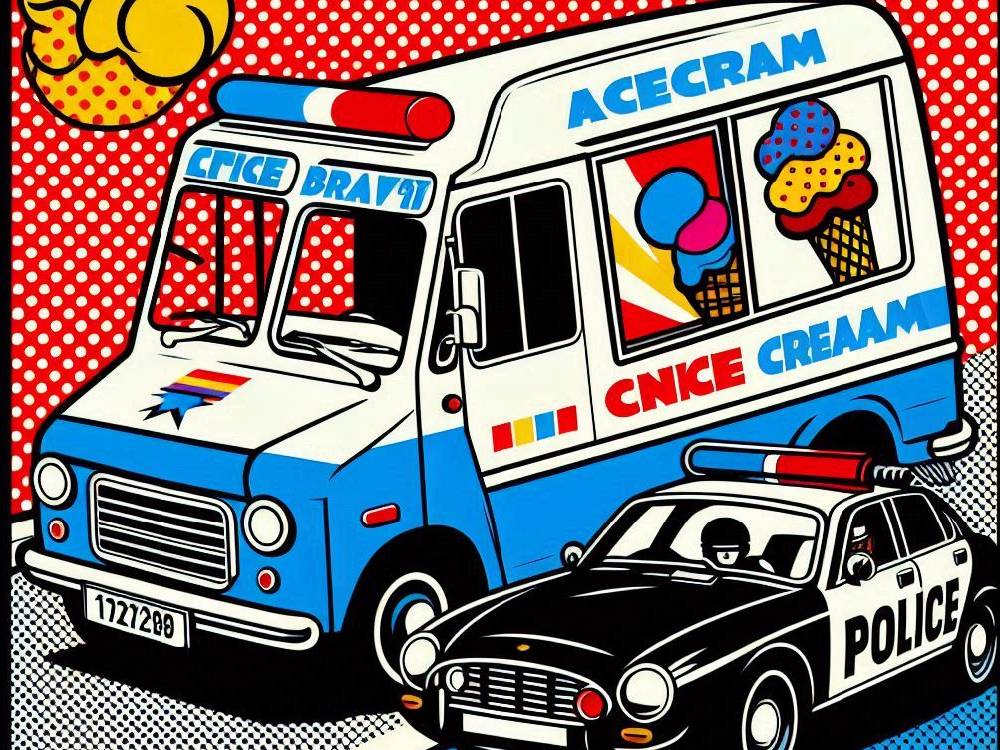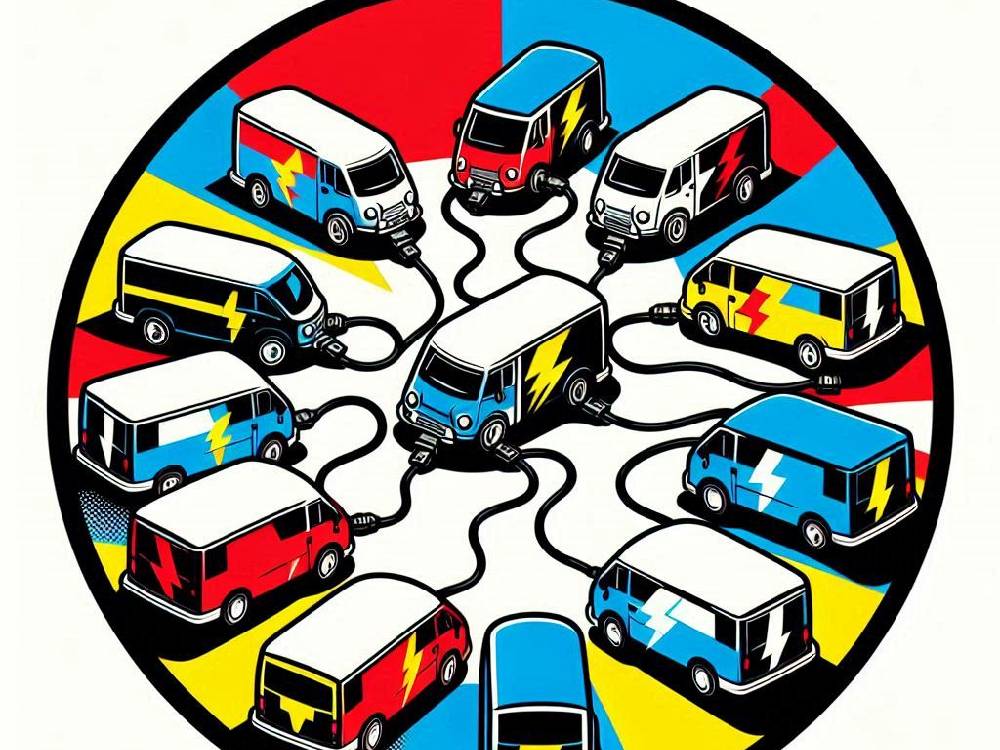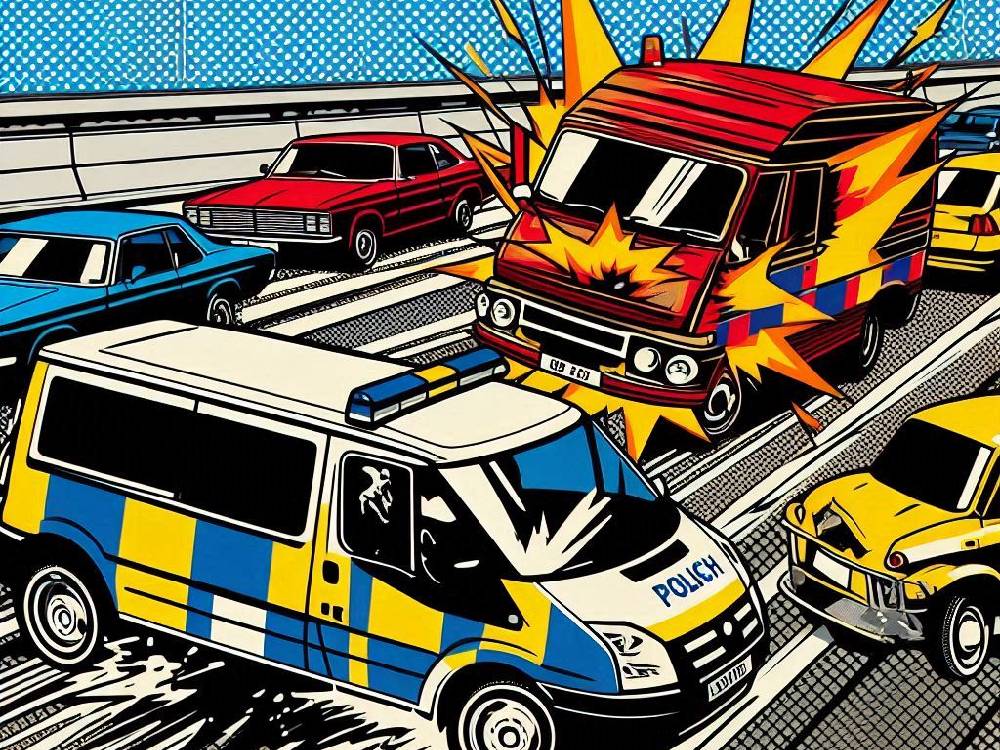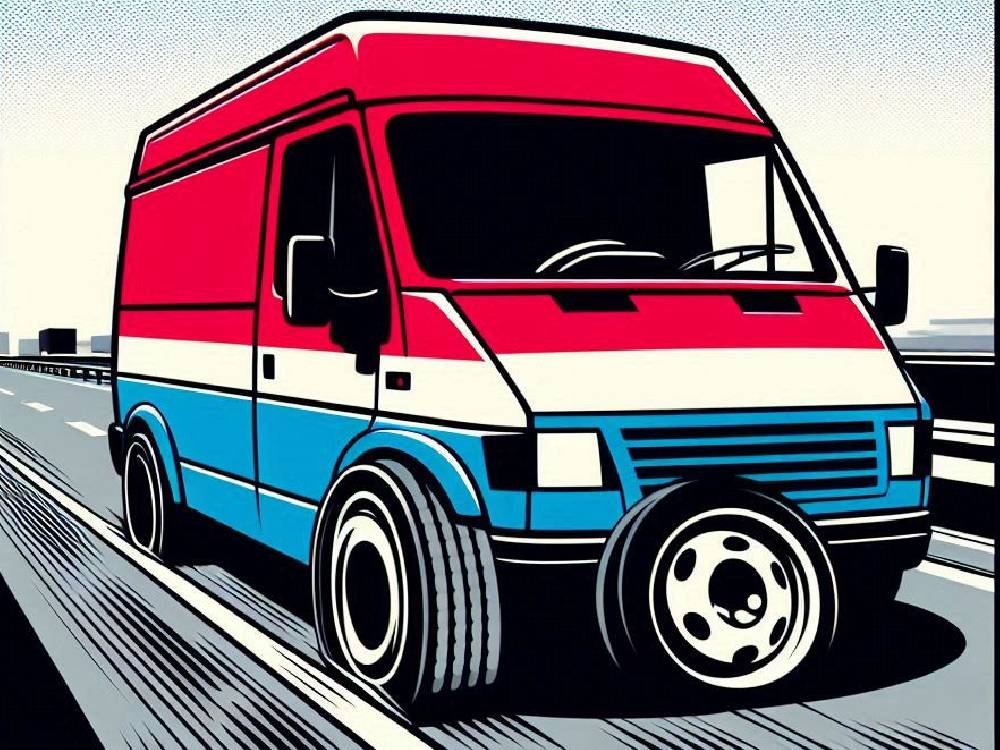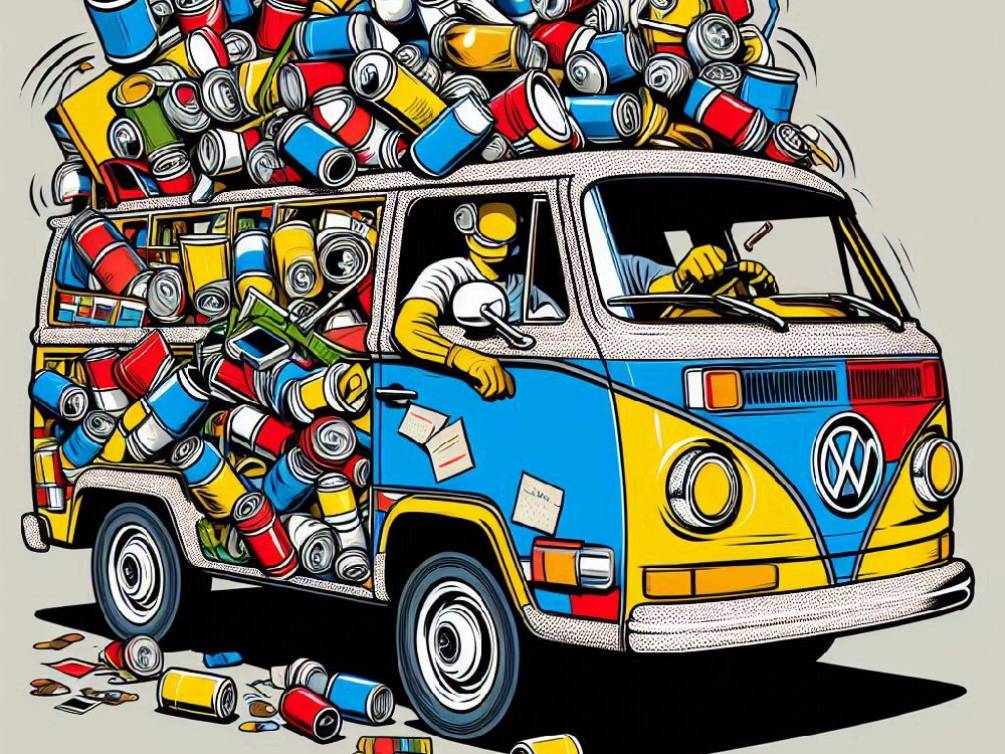Introduction
Van drivers near disaster…
Accidents can happen to anyone.
Even the most experienced van drivers.
But here’s the thing…
Whether it’s a careless mistake by another road user or a simple error of judgment, the outcome can be unpredictable.
So, what happened?
This is exactly what happened to a van driver in Liverpool, where a kind stranger stepped in to lend a helping hand.
But wait, there’s more…
In this article, we’ll explore how a van driver narrowly avoided a much worse outcome and offer some essential driving tips to keep you and your van safe.
Ready to find out?
A Helping Hand: The Liverpool Incident
Recently, in Liverpool, a van driver was going about his usual day.
But what happened next?
He was delivering goods to various restaurants across the bustling city.
It seemed like any other day, but then…
Navigating through tight corners and heavy traffic, he found himself in a tricky situation.
Here’s what went wrong…
A car, irresponsibly parked at a corner, severely limited his visibility.
Things escalated quickly.
As the driver attempted to steer his Ford Transit around the poorly parked vehicle, a car suddenly emerged from a side street.
It cut across his path, giving him little time to react.
Now, here’s the kicker…
In an effort to avoid a collision, the van driver made a sudden maneuver.
He felt the van losing its balance.
Before he knew it, the vehicle was tipping over.
It gets worse…
With four tyres struggling to stay grounded, the van overturned in the middle of the street.
But amidst the chaos, help was at hand.
A kind passerby quickly rushed to the scene.
Guess what happened next?
They pulled the van’s door open while the driver scrambled to climb out.
Despite the shocking turn of events, the driver emerged unscathed—thanks to the quick thinking of his helper.
Why Proper Parking Matters
Now, let’s talk about the real issue here.
The Liverpool incident serves as a stark reminder of why parking in safe, visible spots is vital.
But here’s the problem…
Parking at corners or other dangerous areas is not only a risk to you.
It’s also a risk to other road users.
Here’s what you need to know…
Van drivers, often driving larger vehicles, can face blind spots and reduced visibility.
This makes it crucial to avoid areas that restrict a clear view of the road.
But that’s not all…
Parking in hazardous spots can lead to costly mistakes.
Want to know the real kicker?
With the cost of van insurance premiums rising due to the increase in accidents, it’s essential to be cautious.
The solution is simple.
Ensure you’re not caught out by poor parking habits that could lead to accidents, fines, and increased insurance costs.
Read more about the importance of proper vehicle compliance.
The Van Overturns: A Lesson in Road Safety
Now, here’s something that might surprise you…
While the van driver was lucky to escape with no injuries, overturning a vehicle could have had serious consequences.
And that’s just the beginning.
Not only are overturned vans dangerous, but the damage can also be costly.
But here’s the silver lining…
In these situations, having the right insurance in place can save you from a financial nightmare.
It gets worse…
With accidents on the rise, especially in crowded urban areas, cheap van insurance that offers comprehensive coverage is more essential than ever.
Why is this so important?
Whether it’s covering damages to your van or helping you in legal situations, your insurance policy could be the lifeline you need.
The takeaway?
It’s not just about meeting the legal minimum.
It’s about peace of mind.
Looking for ways to protect your van on the road?
Here’s how telematics devices can save you money on van insurance.
Safe Driving: Common Sense Tips For Van Drivers
Accidents like the one in Liverpool are often preventable.
But did you know…
With some basic safety precautions and the right mindset, van drivers can significantly reduce their chances of being involved in a road incident.
Here’s what you need to do.
Here are some common-sense tips every van driver should keep in mind:
- Stay alert: Always be aware of your surroundings, particularly in urban areas with tight corners and high traffic.
- Drive defensively: Expect the unexpected from other drivers, and be prepared to react calmly.
- Avoid distractions: Keep your focus on the road, and avoid using your phone while driving.
- Park responsibly: Make sure you choose safe parking spots that won’t obstruct the view for other road users.
Remember, these small habits can make a big difference in road safety.
And here’s the best part…
They might even help keep your van insurance premiums low.
How Van Insurance Can Be Your Best Ally
When accidents happen, van insurance can be the one thing standing between you and a hefty financial burden.
Here’s what happened…
The Liverpool driver was fortunate to escape unharmed.
But let’s be real…
The damage to his van could have cost thousands.
But here’s the good news…
With a solid insurance policy, much of this can be covered.
And that’s not all…
Comprehensive cheap van insurance UK plans can cover not only damage to your vehicle.
They can also help with potential legal fees and third-party claims.
What does this mean for you?
Having that safety net means you’re not left out of pocket when disaster strikes.
This is why reviewing your policy and ensuring you have the best coverage is essential.
Especially with premiums fluctuating.
Ready to find the best deal?
Check out how to get the cheapest van insurance rates.
A Not-So-Happy Ending: Staffordshire’s Dangerous Roads
Now let’s shift gears.
In another incident, this time in Staffordshire, a van driver wasn’t so lucky.
Here’s the story…
Council workers were out doing their usual maintenance work, repairing and cleaning roadside gullies.
This is a crucial job, especially in areas prone to flooding.
But then something unexpected happened.
A van driver, towing a trailer, became impatient with the maintenance crew’s road signs and warnings.
Here’s where things took a turn.
Rather than wait, the van driver decided to ignore the warnings.
He mounted the pavement, dangerously driving around the workers, almost causing an accident.
And it gets worse…
The entire reckless event was caught on a dashcam, which captured the van driver’s dangerous behaviour.
Not surprisingly, this footage was handed over to the police.
This is the sort of incident that not only endangers lives but also leads to skyrocketing van insurance premiums.
Staffordshire council later revealed that this type of reckless behaviour is becoming alarmingly common.
Over the past year, they’ve recorded more than 500 incidents where road workers have been verbally abused, ignored, or endangered by drivers.
Let that sink in.
How Reckless Driving Increases Van Insurance Costs
Now, here’s the bottom line…
Reckless behaviour on the roads doesn’t just put lives at risk.
It also has a direct impact on the cost of van insurance.
But why is that?
Insurance companies view reckless driving as high-risk behaviour.
And what happens when insurers perceive higher risk?
You guessed it…
Premiums go up.
That’s right.
Incidents like the one in Staffordshire are exactly why we’ve seen such an increase in van insurance premiums across the UK.
If you drive recklessly, you’re not only putting others in danger.
You’re also making insurance more expensive for everyone else.
So, here’s what you can do.
Take extra care on the roads.
Be patient.
Follow the rules.
And most importantly, drive safely.
If you’re looking for the best deal on van insurance, now’s the time to act.
Find out why van insurance premiums are rising in 2024.
Be Considerate On The Roads: A Call To Action
Here’s the takeaway…
Being considerate on the roads is not just a courtesy—it’s a responsibility.
Van drivers, especially those working long hours or under pressure, can sometimes rush or take risks.
But here’s the thing…
Impatience and reckless behaviour lead to accidents.
And accidents drive up van insurance costs for everyone.
So what’s the solution?
Take your time.
Be patient with road workers, other drivers, and pedestrians.
Most importantly, ensure your van insurance policy is up to date.
Not only will this protect you in the event of an accident, but it could also save you money in the long run.
We really hope that you’re one of the more patient and considerate drivers on the busy roads of the UK.
Want the best protection for your van?
Check out the cheapest and most comprehensive van insurance options today.
Conclusion
The real-life incidents in Liverpool and Staffordshire highlight the importance of safe driving and being considerate on the road.
Whether it’s avoiding dangerous parking or being patient with road workers, these small actions can prevent accidents—and save lives.
But here’s the final thought.
Having the right van insurance in place gives you peace of mind, no matter what the road throws at you.
Want to read more?
Check out these related articles for more insights on how to lower your van insurance premiums:

